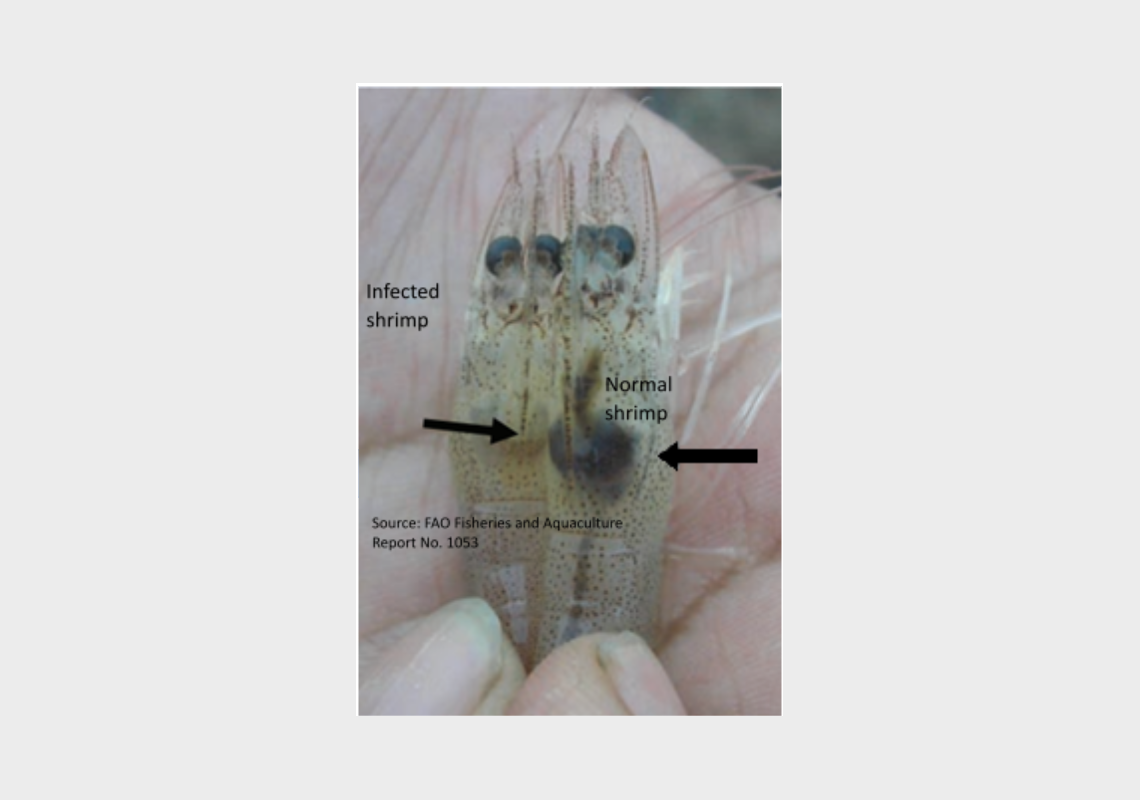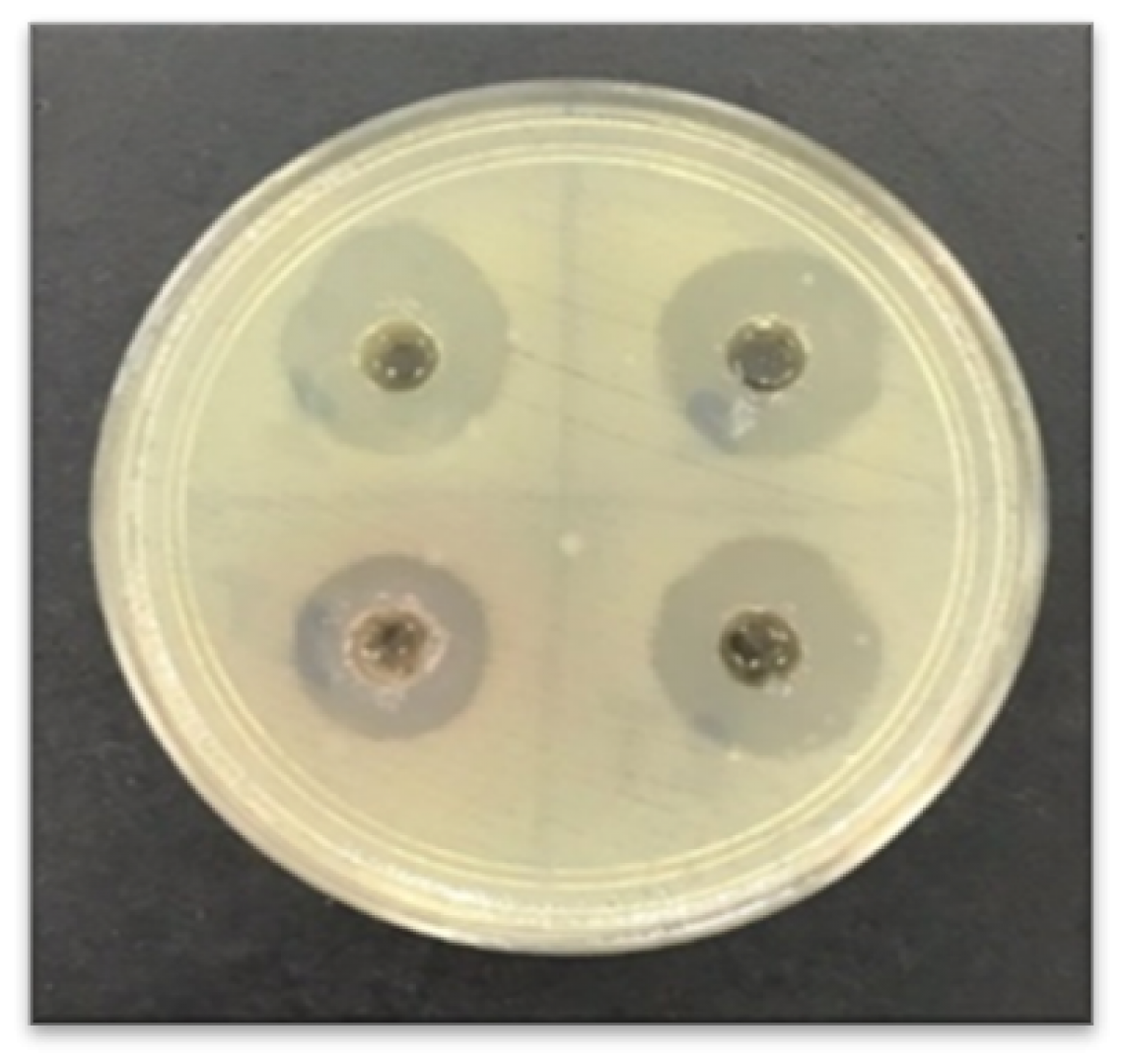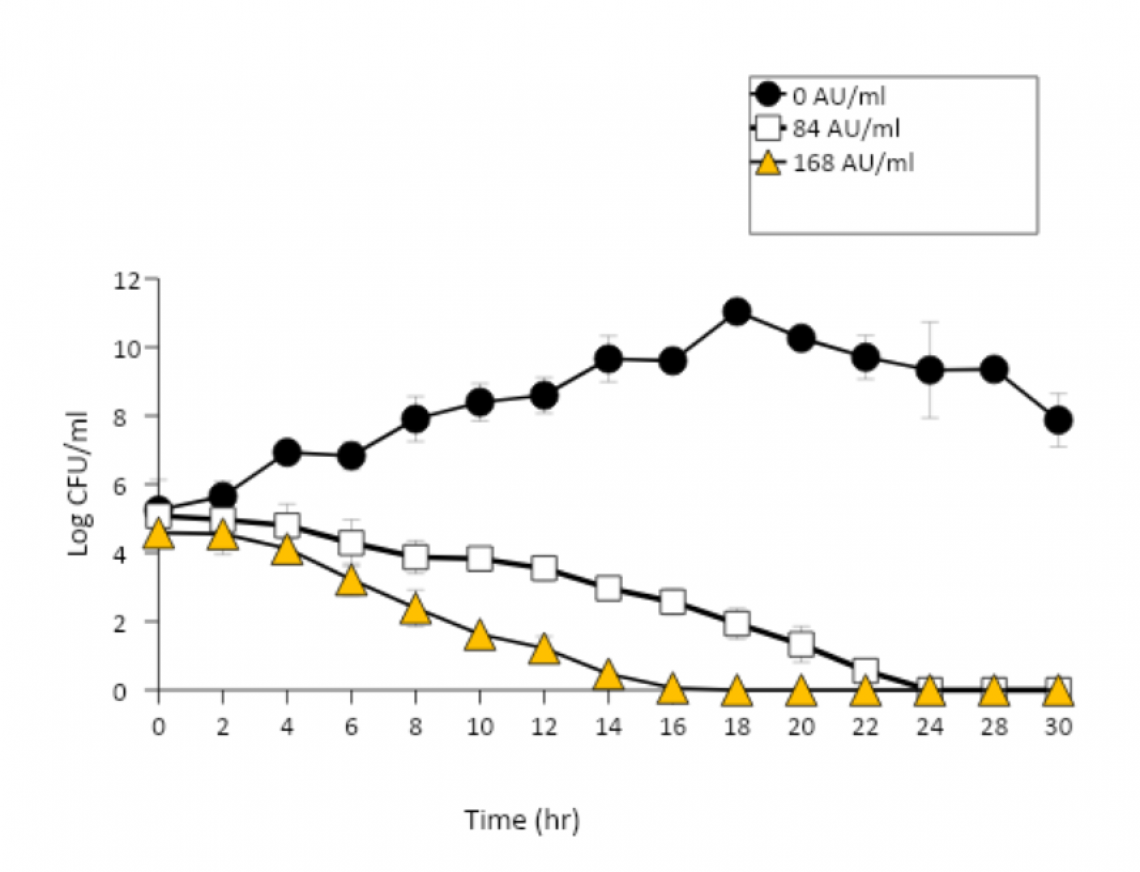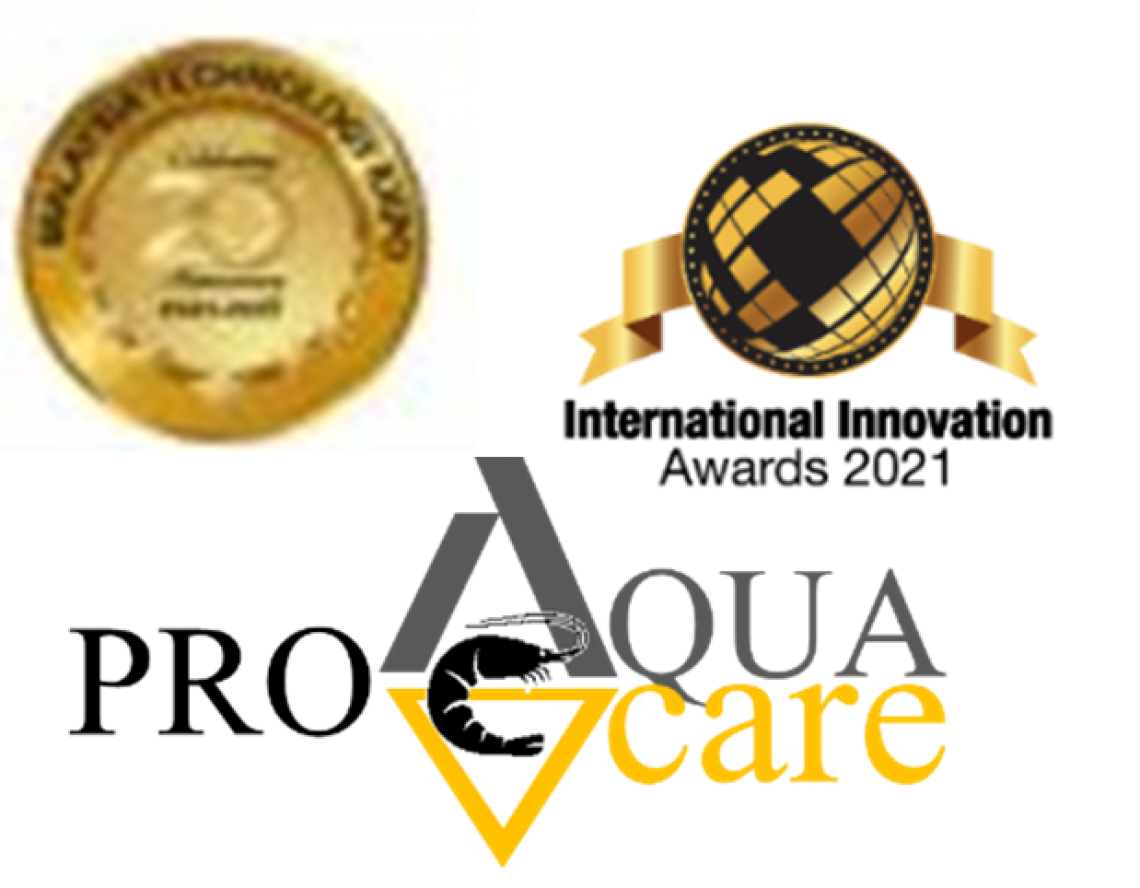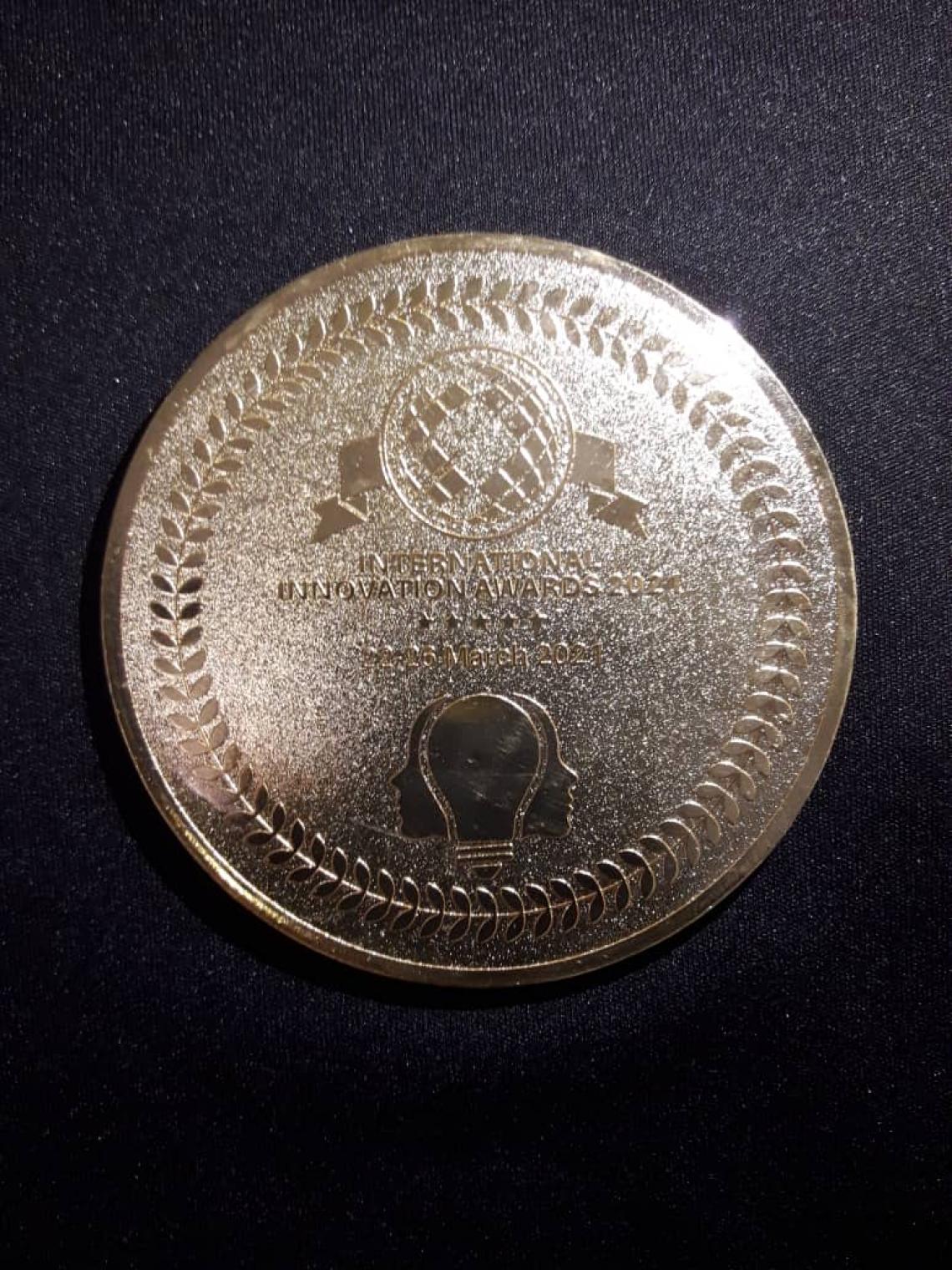EMS shrimp (left) compared to normal shrimp (right). Infected shrimp shows empty stomach and gut
with a shrunken and brighter hepatopancreas (labelled with black arrow).
The product, called ProAquaVcare, includes probiotic bacterial strains derived from black tip sharks and immune-boosting garlic powder. It is hoped the product can treat shrimp infected with the bacterium Vibrio parahaemolyticus, which leads to ‘early mortality syndrome’ (EMS), also known as acute hepatopancreatic necrosis syndrome (AHPNS).
Approximately 5.37 million tonnes of shrimp are produced in Asia (FAO, 2017). In the region, an open pond system has been a tradition and common way of farming.But this type of farming makes shrimp vulnerable to diseases carried by birds and insects or caused by contaminated water bodies, triggering episodes of aquaculture pandemic.
Recently, global shrimp industries have been affected by EMS/AHPNS. Studies have revealed the culprit to be Vibrio parahaemolyticus, which produces a potent toxin that damages shrimps’ vital digestive organ, the hepatopancreas. This disease has resulted in 100% mortality and productivity loss, leading to negative growth in the industry since 2010. Farmers often treat the disease using antibiotics and chemicals, triggering the emergence of antibiotic-resistant strains and leading to the production of contaminated shrimp. As a result, the USFDA has issued bans on Asian shrimp products following a pandemic cycle.
Probiotics are live bacteria that benefit humans and are widely applied in animal feeds. They are commonly used to minimize and manage bacterial outbreaks in shrimp farming. But components vary in commercial probiotics, can be undefined and lack standardisation. Shrimp farmers often use probiotic strains that do not have GRAS (generally regarded as safe) status, affecting human safety.
Agar well diffusion of Lactococcus lactis strains inhibit V. parahaemolyticus on a nutrient agar plate.
A team, led by Dr Tengku Haziyamin Tengku Abdul Hamid at Kulliyyah of Science, International Islamic University Malaysia, has identified probiotic strains with potent antagonism against virulent strains of V. parahemolyticus and Vibrio alginolyticus.
The probiotic strains belong to gram positive cocci and have been identified as Lactococcus lactis strain FA1, FA2, FA3 and FA4. They were originally isolated from the internal organ of a freshly caught black tip shark (Carchahinus limbatus) sold in a local fresh market. These strains were able to produce the antibacterial protein bacteriocin. Studies are now underway to characterise their full properties.
C) The inhibitory effect of L. lactis strain’s cell-free supernatant (CFS) of different diluents on the growth of V. parahaemolyticus (Log CFU/ml).
The team is actively looking for collaboration and funding to run shrimp trials before proceeding to the next level of commercialisation. It believes ProAquaVcare is a future game changer in shrimp probiotics and could help recover the industry to its full capacity.
The ProAquaVcare prototype was awarded gold medal for International Innovation Award in the recent Malaysian Technology Expo 2021 (MTE 2021).
Contact details:
Dr. Tengku HaziyaminTengku Abdul Hamid: [email protected]
International Islamic University Malaysia
25200 Jalan Istana, Bandar Indera Mahkota, Kuantan
Malaysia
Journal:
Tengku Haziyamin Tengku Abdul Hamid, Khairil Ikhwan Ahmad Zahli, Mohammed Alotaibi (2021) Lactococcus lactis strains from intestinal organ of Black tips shark Carcharhinus limbatus producing nisin-like bacteriocin active against shrimp and fish pathogens (Vibrio parahaemolyticus and Vibrio alginolyticus).Journal of Microbiology, Biotechnology and Food Sciences. 10(3); 354-360, DOI: 10.15414/jmbfs.2020.10.3.354-360


